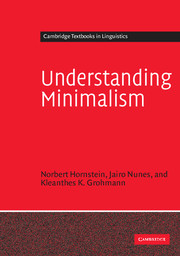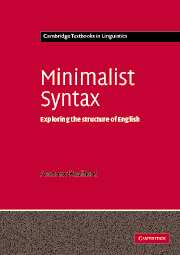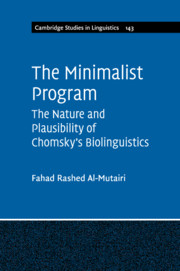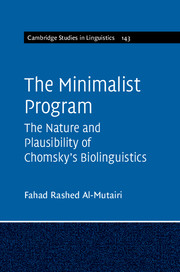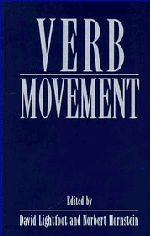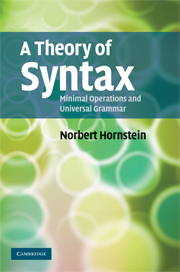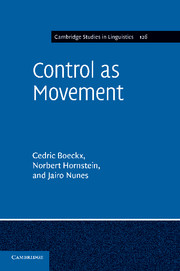Understanding Minimalism
Understanding Minimalism, first published in 2005, is an introduction to the Minimalist Program - the model of syntactic theory within generative linguistics. Accessibly written, it presents the basic principles and techniques of the minimalist program, looking firstly at analyses within Government and Binding Theory (the Minimalist Program's predecessor), and gradually introducing minimalist alternatives. Minimalist models of grammar are presented in a step-by-step fashion, and the ways in which they contrast with GB analyses are clearly explained. Spanning a decade of minimalist thinking, this textbook will enable students to develop a feel for the sorts of questions and problems that minimalism invites, and to master the techniques of minimalist analysis. Over 100 exercises are provided, encouraging them to put these skills into practice. Understanding Minimalism will be an invaluable text for intermediate and advanced students of syntactic theory, and will set a solid foundation for further study and research within Chomsky's minimalist framework.
- Reader-friendly and engaging
- 20 graded exercises in each chapter (over 100 in total)
Product details
December 2005Paperback
9780521531948
422 pages
248 × 175 × 26 mm
0.82kg
72 b/w illus. 132 exercises
Available
Table of Contents
- 1. The minimalist project
- 2. Some architectural issues in a minimalist setting
- 3. Theta domains
- 4. Case domains
- 5. Movement and minimality effects
- 6. Phrase structure
- 7. Linearization
- 8. Binding theory
- 9. Feature interpretability and feature checking
- 10. Derivational economy.

